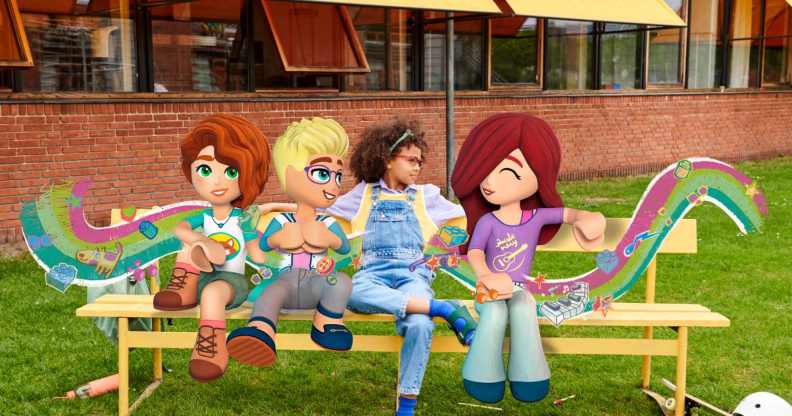The Telegraph frantically backpedals after cruel attack on ‘woke’ Lego

The new LEGO friends characters have come under fire from The Telegraph for being ‘woke’
The Telegraph has come under fire for calling a new range of LEGO toys ‘woke’ – because some characters have Down’s syndrome and limb difference.
In an article published on Wednesday (February 22) The Telegraph headlined news about re-imagined LEGO Friends characters as: ‘Lego goes ‘woke’ as new figures released with Down’s syndrome and missing limbs’.
The headline was swiftly slammed on social media for being ableist and “weaponising disabled representation”.
PinkNews has contacted The Telegraph for comment.
The Denmark-based toy company announced the new LEGO Friends characters at the beginning of February, stating the toys are “more representative of the world that today’s kids navigate”.
The new characters feature a wider variety of skin tones, cultural backgrounds, disabilities, as well as neurodiversity.
Comedian Adam Hills, who was born without a right foot and wears a prosthesis, posted screenshots of the Telegraph’s article to his Twitter page.
“Hey @NickSquires1,” he addressed to the journalist who wrote the story.
“I’m wondering why you’ve tied Lego’s new disabled figures into the “anti-woke” movement. Who are these “others” that think the inclusivity is overly sensitive?”
Scope, a disability equality charity, called for the newspaper to change its headline.
“Why are you so against disabled children being able to see themselves reflected in their toys? Don’t they deserve the right to play?,” Scope wrote on Twitter.
“Weaponising disabled representation like this is hugely damaging.”
Following the backlash the headline was quickly changed to ‘Lego releases new figures with Down’s syndrome and missing limbs’.
However, despite the new headline the story remains tagged under The Telegraph’s ‘woke’ section.
Children want more diverse toys, research shows
By releasing the new characters, LEGO hopes children will gain a better understanding of others, be able to navigate their own experiences and, in turn, become better friends.
To support the launch of the toys, LEGO conducted research into the diversity and complexity of modern friendships amongst young children around the world.
From research on 18,000 children from 19 different countries, the toy company discovered that nine in ten (93 per cent) agree it’s good to have a diverse friendship group who can teach you different things.
Two in three children (68 per cent) also said they want to see more toys and characters portray different emotions to better reflect real life.
In a press release announcing the toys, LEGO’s head of product, Tracie Chiarella, said the reimagination “has enabled us to push the boundaries not only in the content and the storytelling, but also in the reflection of modern, childhood friendships”.
“It’s great to see that kids acknowledge the importance of friendship for their mental health and it’s encouraging to hear they want more emotional diversity to be represented in the content they consume and the toys and characters they play with.”
Click here to join our new PinkNews Alerts WhatsApp group for daily digests of our top LGBTQ+ news and features.
How did this story make you feel?

